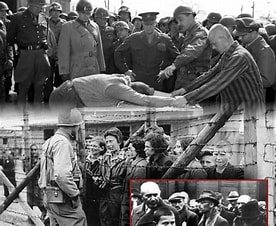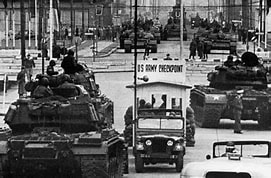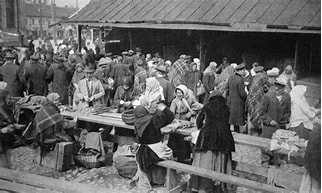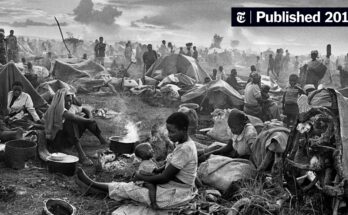Introduction
World War I, often referred to as the Great War, was a global conflict that lasted from 1914 to 1918 and had far-reaching consequences for international relations, national identities, and the world order. Imagine a world where the intricate web of alliances, the rise of new ideologies, and the devastating effects of war reshaped the global political landscape. In this article, we will explore the profound impact of World War I on global politics, from the immediate aftermath to the long-term effects that still influence our world today.
Causes and Alliances
The Complex Web of Alliances
Before World War I, Europe was divided into two main alliances: the Triple Entente (France, Russia, and Britain) and the Triple Alliance (Germany, Austria-Hungary, and Italy). This complex system of alliances created a situation where a small conflict could quickly escalate into a larger war.
The Assassination of Archduke Franz Ferdinand
The assassination of Archduke Franz Ferdinand of Austria-Hungary by a Serbian nationalist in 1914 was the spark that ignited the war. This event triggered a chain reaction of military mobilizations and declarations of war among the European powers.

The War and Its Immediate Aftermath
The War Effort and New Technologies
World War I was characterized by the introduction of new military technologies such as tanks, machine guns, and chemical warfare. These technologies made the war more brutal and led to unprecedented human suffering.
The Russian Revolution and the Rise of Communism
In 1917, the Russian Revolution led to the overthrow of the Tsarist regime and the establishment of the world’s first communist state. This event had significant global implications, as it introduced a new ideological force into international politics.
The Treaty of Versailles
The Treaty of Versailles, signed in 1919, officially ended the war but imposed harsh penalties on Germany, including significant territorial losses and reparations. This treaty is often seen as a contributing factor to the rise of Nazi Germany and the outbreak of World War II.

Redrawing the Global Map
The Collapse of Empires
World War I led to the collapse of several empires, including the Austro-Hungarian, German, Russian, and Ottoman Empires. This collapse resulted in the redrawing of national borders and the creation of new nation-states.
The Rise of the United States and the Soviet Union
The war marked the emergence of the United States and the Soviet Union as global superpowers. These two nations would go on to dominate international politics for much of the 20th century.
The League of Nations and International Cooperation
The Birth of the League of Nations
In an effort to prevent future wars, the League of Nations was established after World War I. Although it had some successes, the League ultimately failed to prevent the outbreak of World War II due to its lack of enforcement powers and the withdrawal of key members like Japan, Germany, and Italy.
The Concept of Collective Security
The League of Nations introduced the concept of collective security, where member states would collectively defend any member under attack. This idea has influenced subsequent international organizations, including the United Nations.
Economic Consequences
War Debt and Reparations
The war left many countries with significant debt and imposed harsh reparations on Germany, which contributed to economic instability in the interwar period. The global economy suffered from inflation, unemployment, and eventually the Great Depression.
The Rise of Protectionism
In response to economic instability, many countries turned to protectionist policies, such as tariffs and trade barriers. This led to a decline in international trade and exacerbated the economic downturn.
Social and Cultural Impacts
The Lost Generation
World War I had a profound impact on society and culture. The war led to the loss of an entire generation of young men, which had lasting effects on family structures and social norms.
The Rise of New Ideologies
The war also saw the rise of new ideologies such as fascism and communism. These ideologies would shape the course of the 20th century, leading to further global conflicts.
The Interwar Period and the Road to World War II
The Rise of Nazi Germany
The Treaty of Versailles and the economic hardships of the interwar period created an environment in which extremist ideologies like Nazism could thrive. Adolf Hitler’s rise to power in Germany led to the remilitarization of the Rhineland, the annexation of Austria, and eventually the invasion of Poland, which marked the beginning of World War II.

Appeasement Policy
The policy of appeasement, pursued by Britain and France towards Nazi Germany, failed to prevent the outbreak of World War II. This policy is often seen as a lesson in the dangers of appeasing aggressive powers.
Long-Term Impacts on Global Politics
The United Nations and Modern International Relations
The failure of the League of Nations led to the establishment of the United Nations after World War II. The UN has played a crucial role in maintaining international peace and security, although it still faces many challenges.
The Cold War and Bipolar World Order
The post-World War I era set the stage for the Cold War, a period of ideological and geopolitical tension between the United States and the Soviet Union. This bipolar world order dominated international politics until the collapse of the Soviet Union in 1991.
Modern Global Governance
World War I marked a significant shift towards modern global governance. The war highlighted the need for international cooperation and the establishment of institutions that could prevent future conflicts. Today, we see a complex web of international organizations, treaties, and agreements aimed at maintaining global peace and stability.
Conclusion
World War I was a pivotal event in global politics, marking the end of an era and the beginning of a new world order. From the collapse of empires to the rise of new ideologies, the war’s impact is still felt today. As we navigate the complexities of the modern world, understanding the lessons of World War I is crucial for building a more peaceful and stable future.
Meta Description
Explore the profound impact of World War I on global politics, from the immediate aftermath to the long-term effects that still shape our world today. Learn about the war’s causes, its economic and social consequences, and its lasting influence on international relations.
FAQs
What were the main causes of World War I?
The main causes of World War I included the complex web of alliances between European powers, the assassination of Archduke Franz Ferdinand, and the rise of nationalist and imperialist tensions.
How did the Treaty of Versailles contribute to the rise of Nazi Germany?
The Treaty of Versailles imposed harsh penalties on Germany, including significant territorial losses and reparations, which contributed to economic instability and resentment among the German people. This environment allowed extremist ideologies like Nazism to thrive.
What was the impact of World War I on the global economy?
World War I left many countries with significant debt and imposed harsh reparations on Germany, leading to economic instability, inflation, unemployment, and eventually the Great Depression. The war also led to a rise in protectionist policies, which further exacerbated economic downturns.
How did World War I influence the rise of new ideologies?
The war saw the rise of new ideologies such as fascism and communism. The Russian Revolution introduced communism as a global force, while the economic hardships and social upheaval of the interwar period created an environment in which fascist movements could gain traction.
What are the long-term impacts of World War I on modern international relations?
World War I led to the establishment of the League of Nations and later the United Nations, emphasizing the need for international cooperation and global governance. It also set the stage for the Cold War and the bipolar world order, and its lessons continue to influence modern global politics and the development of international institutions.


